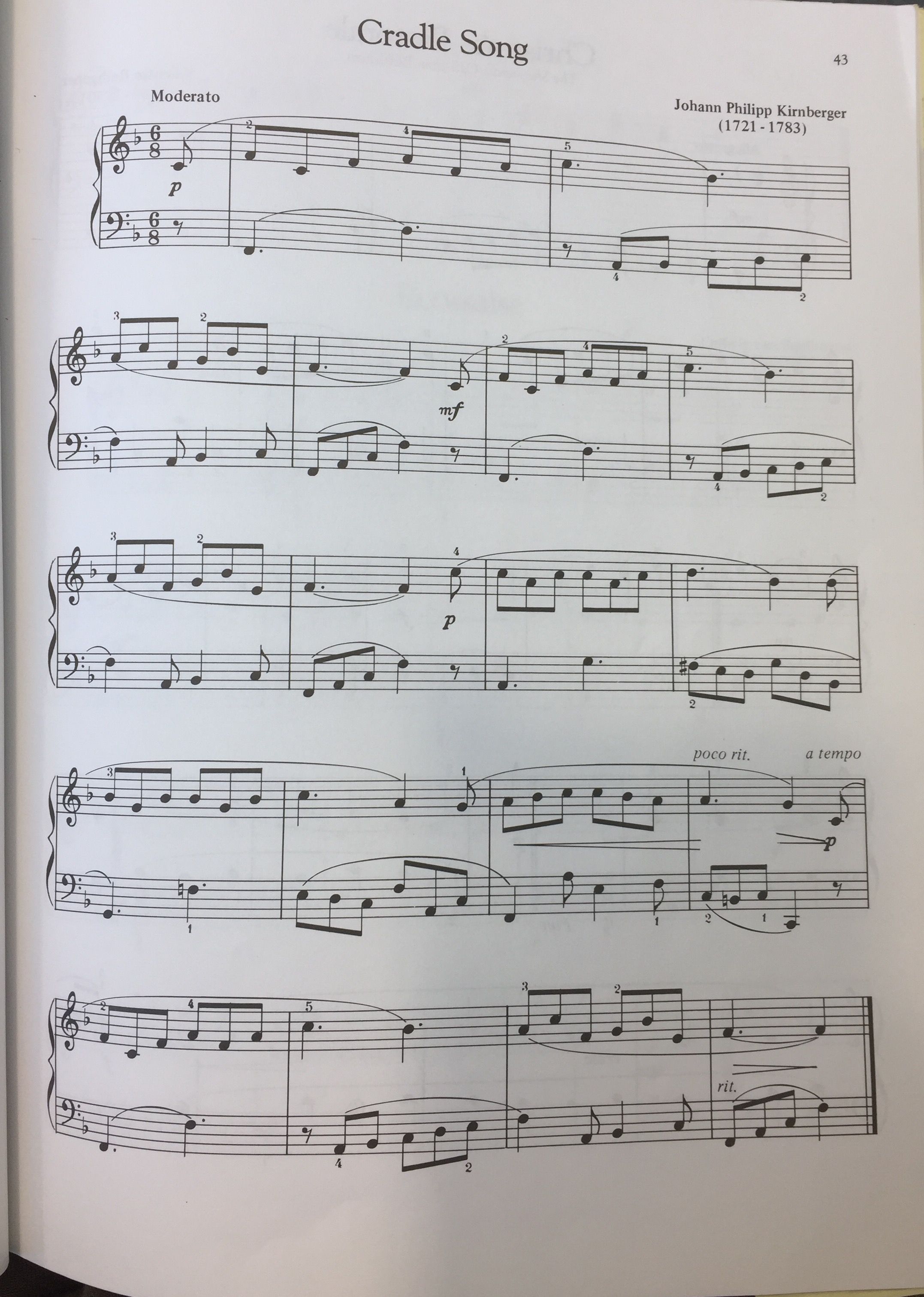The Joy of Classics (38)
Hi dear Steemians,
I love the German music of Classicism!
Without it, we are nothing...
There is another great and unknown composer from this period, Johann Philipp Kirnberger (1721– 1783).

He had the great luck of being a student of J.S.Bach, and always admired him.
He had also an important role in the intellectual and cultural exchange between Germany and Poland in the middle 18th century, spending much time collecting Polish national dances and compiled them.
He was violinist at the court of Frederick II of Prussia in 1751 and became the music director to the Prussian Princess Anna Amalia from 1758 until his death.
This "Cradle Song" composed like a little Dueto, in F Major, almost comes to a romantic feeling, clearly anticipating the German romantic style that few years later will have his apogee with Robert Schumann:
- Quite long phrases
- Large intervals in some parts of the melody
- tempo moderato
It is very important to distinguish the different dynamics of the phrases, establishing a sound balance during the whole performance.
As you can see, there is a dialogue between the right hand and the left hand.
In the first measure, the right hand plays a beautiful melodic motif, to which the left hand answers. This motif is developed throughout the piece to the end in a beautiful musical discourse.
I hope you like it, it is always a pleasure to play for you!
@titin

Hola querido Steemians,
¡Me encanta la música alemana del Clasicismo!
Sin ella, no somos nada ...
Hay otro gran compositor, también desconocido de este período, Johann Philipp Kirnberger (1721-1783).
Tuvo la gran suerte de ser un estudiante de J.S.Bach, y siempre lo admiró.
También tuvo un papel importante en el intercambio intelectual y cultural entre Alemania y Polonia a mediados del siglo XVIII. Pasó mucho tiempo recogiendo bailes nacionales polacos y los compiló en algunos tratados.
Fue violinista en la corte de Federico II de Prusia en 1751 y se convirtió en el director musical de la princesa prusiana Anna Amalia desde 1758 hasta su muerte.
Esta "canción de cuna" compuesta como un pequeño dueto, en la tonalidad de fa mayor, casi llega a un sentimiento romántico, anticipando claramente el estilo romántico alemán que pocos años más tarde tendrá su apogeo con Robert Schumann:
- Frases bastante largas
- Grandes intervalos en algunas partes de la melodía
- tempo moderato
Es muy importante distinguir las diferentes dinámicas de las frases, estableciendo un equilibrio sonoro durante toda la interpretación.
Como véis, se produce un diálogo entre la mano derecha y la mano izquierda. En el primer compás la mano derecha toca un hermoso motivo melódico, al que responde la mano izquierda. Este motivo se desarrolla durante toda la pieza hasta el final en un bello discurso musical
Espero que os guste
¡Siempre es un placer tocar para vosotros!
@titin
Me declaro fanatico de tu blog
El fanatismo no es nada nada bueno @piterman.
Gracias!